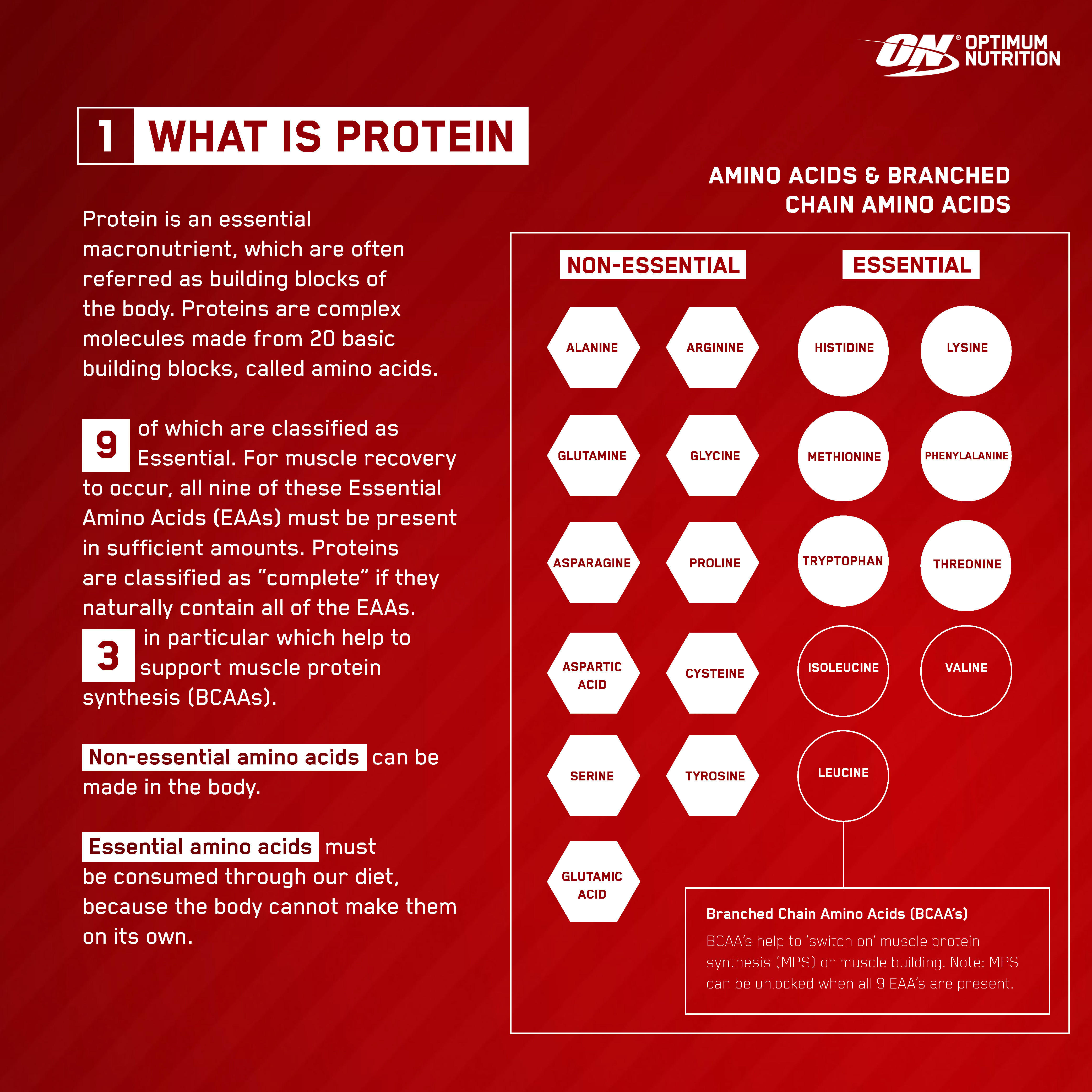
The Role Of Protein In Your Fitness Journey: A Comprehensive Guide
The Role of Protein in Your Fitness Journey: A Comprehensive Guide
Related Articles
- The Ultimate Fitness Journey: Transform Your Life In 12 Weeks
- Unlocking The Power Of A Healthy Mindset: Your Ultimate Guide To Mental Wellness
- How To Keep Fitness Fun: Unlocking The Secrets To A Joyful Journey
- Fueling Your Fitness: The Ultimate Guide To Eating Before And After Workouts
- The Big Secret To A Successful Fitness Journey: Diet Tips And Tricks That Actually Work
Introduction
Learn how The Role of Protein in Your Fitness Journey: A Comprehensive Guide can support your health goals
The Role of Protein in Your Fitness Journey: A Comprehensive Guide

Protein. It’s a buzzword in the fitness world, touted as the building block for muscle growth, the key to satiety, and the magic ingredient for weight loss. But what exactly is protein, and how does it truly contribute to your fitness goals? This comprehensive guide will delve deep into the world of protein, uncovering its secrets and equipping you with the knowledge to optimize its role in your fitness journey.
Understanding Protein: The Building Block of Life
Protein is an essential macronutrient, meaning your body cannot produce it on its own and relies on external sources. It’s made up of amino acids, the building blocks for various bodily functions. These include:
- Muscle Growth and Repair: Protein is crucial for muscle protein synthesis, the process of building and repairing muscle tissue. When you lift weights or engage in intense exercise, your muscles break down. Protein provides the necessary amino acids to rebuild them stronger and bigger.
- Hormone Production: Hormones like insulin, growth hormone, and thyroid hormones are all made from protein. These hormones regulate various bodily functions, including metabolism, growth, and energy production.
- Enzymes and Antibodies: Enzymes, which catalyze chemical reactions in your body, and antibodies, which fight off infections, are also made from protein.
- Tissue Repair and Maintenance: Protein is essential for repairing and maintaining all types of tissue, including skin, bones, and ligaments.
- Satiety and Weight Management: Protein is more satiating than carbohydrates or fats, meaning it keeps you feeling fuller for longer. This can help you control your calorie intake and manage your weight.
Protein Needs: A Personalized Approach
Review
The recommended daily protein intake varies depending on factors like age, activity level, and fitness goals.
- General Recommendations: The recommended daily intake for adults is 0.8 grams of protein per kilogram of body weight (0.36 grams per pound). This is a general guideline, and individual needs may differ.
- Athletes and Fitness Enthusiasts: Athletes and individuals engaging in regular intense exercise require higher protein intake, ranging from 1.2 to 1.7 grams per kilogram of body weight (0.55 to 0.77 grams per pound).
- Weight Loss Goals: Increasing protein intake can be beneficial for weight loss, as it boosts metabolism, increases satiety, and preserves muscle mass during calorie restriction.
Tip: To determine your individual protein needs, consult a registered dietitian or certified personal trainer.
Step-by-Step Guide
Unlocking the Power of Protein: Tips and Tricks
Now that you understand the importance of protein, let’s explore practical tips and tricks to optimize its role in your fitness journey:
1. Prioritize Protein Timing
Timing your protein intake throughout the day can significantly impact its effectiveness.
- Pre-Workout: Consuming protein before your workout can help improve muscle protein synthesis and reduce muscle breakdown. Aim for 20-30 grams of protein about 30-60 minutes before exercise.
- Post-Workout: This is the most crucial time for protein intake. Consuming protein within 30-60 minutes after your workout helps repair and rebuild muscle tissue. Aim for 20-40 grams of protein.
- Throughout the Day: Spreading your protein intake throughout the day ensures a constant supply of amino acids for your body to utilize. Aim for 20-30 grams of protein per meal.
Tips to Maximize Your Fitness Journey
Tip: Consider protein shakes or snacks for easy and convenient protein intake between meals.
2. Choose Protein Sources Wisely
Not all protein sources are created equal. Some are more nutrient-rich, easier to digest, and more effective in promoting muscle growth.
High-Quality Protein Sources:
- Lean meats: Chicken breast, turkey, lean beef, fish
- Eggs: A complete protein source with high bioavailability
- Dairy products: Greek yogurt, cottage cheese, low-fat milk
- Legumes: Lentils, beans, chickpeas
- Soy products: Tofu, tempeh, edamame
- Nuts and seeds: Almonds, walnuts, chia seeds, flaxseeds
Protein Powders: Protein powders can be a convenient way to increase your protein intake, especially after workouts. Choose whey protein for fast absorption, casein protein for sustained release, or plant-based protein powders for vegan options.
Tip: Experiment with different protein sources to find what works best for you.
3. Optimize Your Protein Intake for Weight Loss
Protein can play a crucial role in weight loss by:
- Boosting Metabolism: Protein requires more energy to digest than carbohydrates or fats, boosting your metabolism and helping you burn more calories.
- Increasing Satiety: Protein helps you feel fuller for longer, reducing cravings and preventing overeating.
- Preserving Muscle Mass: During weight loss, it’s crucial to preserve muscle mass, which protein helps achieve.
Tip: Aim for a protein intake of 1.2-1.7 grams per kilogram of body weight when aiming for weight loss.
4. Fuel Your Recovery with Protein
Protein is crucial for muscle recovery after intense exercise.
- Repair and Rebuild: Protein provides the building blocks to repair damaged muscle fibers and promote muscle growth.
- Reduce Soreness: Consuming protein after exercise can help reduce muscle soreness and improve recovery time.
- Prevent Muscle Breakdown: Adequate protein intake helps prevent muscle breakdown, ensuring your body has the resources for optimal recovery.
Tip: Consider consuming a protein shake or snack immediately after your workout to maximize recovery.
5. Protein for Enhanced Performance
Protein can enhance your athletic performance by:
- Boosting Strength and Power: Adequate protein intake supports muscle growth, leading to increased strength and power.
- Improving Endurance: Protein can help maintain muscle glycogen stores, providing sustained energy for endurance activities.
- Faster Recovery: Protein aids in muscle recovery, allowing you to train harder and more frequently.
Tip: Ensure you’re meeting your protein needs based on your training volume and intensity.
6. Protein for Overall Health
Beyond its role in fitness, protein plays a crucial role in overall health.
- Stronger Bones: Protein is essential for bone health, providing the building blocks for bone growth and maintenance.
- Improved Immune Function: Protein is essential for producing antibodies, which fight off infections and strengthen your immune system.
- Healthy Skin and Hair: Protein is vital for skin and hair health, providing the building blocks for collagen and keratin, which contribute to their strength and elasticity.
Tip: Prioritize protein-rich foods in your diet for overall health and well-being.
Progression of Protein Tips and Tricks
As you progress on your fitness journey, your protein needs and strategies may evolve.
- Beginner: Focus on meeting your basic protein needs and incorporating protein sources into every meal.
- Intermediate: Experiment with different protein timing strategies and prioritize protein intake around workouts.
- Advanced: Consider protein supplementation, optimize protein timing for specific training goals, and seek guidance from a qualified professional.
Conclusion: The Power of Protein
Protein is not just a fitness buzzword; it’s a fundamental nutrient that plays a crucial role in building and maintaining muscle, supporting overall health, and enhancing athletic performance. By understanding its role and implementing the tips and tricks discussed in this guide, you can unlock the power of protein and propel your fitness journey to new heights.
Frequently Asked Questions (FAQs)
Q: What are the best protein sources for vegetarians and vegans?
A: Vegetarians and vegans can get protein from various sources, including legumes (lentils, beans, chickpeas), tofu, tempeh, edamame, nuts, seeds, quinoa, and plant-based protein powders.
Q: How much protein should I consume per meal?
A: Aim for 20-30 grams of protein per meal, depending on your individual needs and activity level.
Q: Is it better to eat protein before or after a workout?
A: Both pre-workout and post-workout protein intake are important. Consuming protein before your workout can help improve muscle protein synthesis, while post-workout protein intake helps repair and rebuild muscle tissue.
Q: Can I get enough protein from food alone?
A: For most people, getting enough protein from food alone is possible. However, athletes and individuals with high protein needs may benefit from protein supplementation.
Q: Are protein shakes necessary?
A: Protein shakes are not necessary for everyone. They can be a convenient way to increase your protein intake, especially after workouts or between meals. However, you can also achieve your protein goals through whole food sources.
Q: What are the signs of protein deficiency?
A: Signs of protein deficiency include fatigue, muscle weakness, hair loss, and slow wound healing.
Q: Is too much protein harmful?
A: Consuming too much protein can lead to digestive issues, dehydration, and kidney strain in some individuals. However, for most healthy adults, moderate protein intake is safe.
Q: How do I know if I’m getting enough protein?
A: Consult with a registered dietitian or certified personal trainer to determine your individual protein needs and ensure you’re meeting them.
Remember: This guide provides general information and should not be considered medical advice. Consult with a healthcare professional for personalized guidance.
Source:
Closure
Thank you for joining us; keep visiting for updates on The Role of Protein in Your Fitness Journey: A Comprehensive Guide and related topics.
Stay tuned for more expert tips to elevate your fitness journey!
Keep up with our latest fitness and wellness content!




